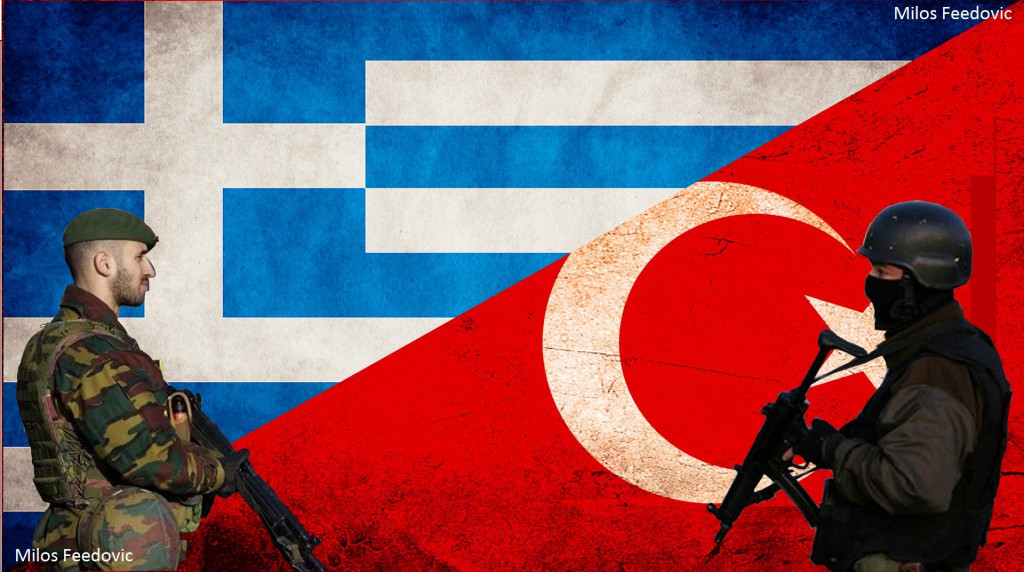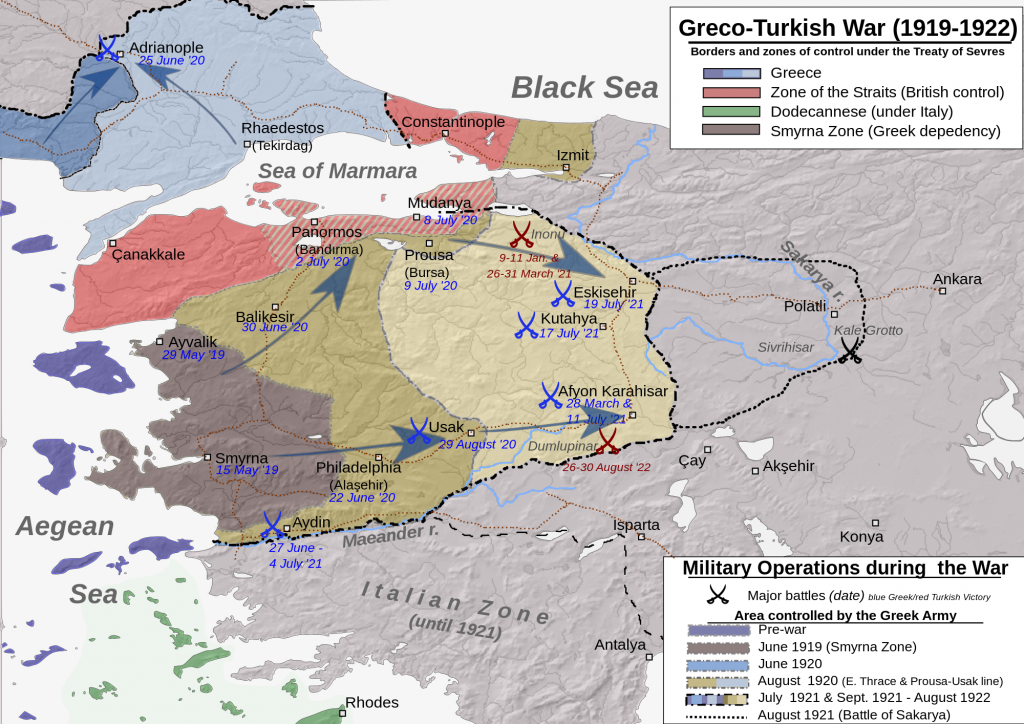
Written by Ian Greenhalgh; Originally appeared at VeteransToday
Greeks and Turks don’t like each other. That is putting it very mildly – they absolutely loathe and despise each other. I first learned that the Greeks have a burning hatred of the Turks in the early 90s when I went to university in Bradford, England.
There were tens of thousands of Greek exchange students studying at Bradford and I became firm friends with several of them; in my first year as an undergraduate we had a lot of fun and raised our fair share of hell.
My first inkling of the Greco-Turk antipathy came when my friend Angelos received a VHS videotape from home and asked if he and some other Greek guys could watch it in my room – I had the only VCR. It was the final of some European basketball competition and a Greek team was playing a Turkish team.
I sat and watched it with them and while I know nothing about basketball I found it most entertaining because between the violence on the court and the worse violence in the stands, it more closely resembled a battle from the Middle Ages than any form of sport. The Greeks won and celebrated their victory by roundly thrashing the Turkish fans in fisticuffs.
Panathanaikos of Greece played Galatasaray of Turkey in Istanbul at football in 2012 and as usual, there was a lot of fighting between the fans. these two nations need little excuse to go to war.
I recall mentioning one night that there didn’t seem to be any Turks studying in Bradford and one of my Greek friends laughed and explained, only half-joking that ‘the Turks wouldn’t come here – we would eat them.’
This attitude has very deep historical roots. The Ottoman Turks ruled over Greece for almost four centuries and the Greeks only won their independence as recently as 1829. Since then, the two countries have fought several wars, most notably from 1919 to 1922 which was a particularly cruel and brutal conflict that saw large scale abuses of human rights including ethnic cleansing and genocide.
The Turks drove out all the Greeks who lived in Turkey and destroyed all of the Greek communities in Anatolia, some of which had been there thousands of years. The Greeks expelled all Turks from their lands too; this was a war marked by suffering of civilians on both sides.
Most recently, Turkey invaded Cyprus, seizing the northern part of the island in 1974. The two sides have been held apart by a UN buffer zone and an uneasy ceasefire overseen by a permanent UN peacekeeping presence ever since.
Given their long shared history of mutual hostility, both sides are very sensitive to any military moves by the other, hence in this report from Ria-Novosti we are seeing Greece reacting to what they perceive to be a provocation on Turkey’s part by taking no chance of being caught by surprise should Erdogan decide to emulate the Ottoman rulers of the 15th century and attempt to re-conquer Greece.
__________
Ria-Novosti, Athens, 14th April 1026
Greek Armed Forces on Combat Alert in Response to Turkish Provocations
The Greek Armed Forces have been placed on combat readiness since dawn on Thursday due to Turkish provocations, a source in the Greek Defense Ministry said Thursday.
Over the recent days, the Turkish military aircraft have been registered flying above the Greek islands in northeastern part of the Aegean Sea, which was seen as a potential threat by Athens.
“We are holding large exercises in order to be ready. Turkey has historically always tried to export problems when it has domestic ones. We must be ready for that,” the source told RIA Novosti.
He also said that the drills were conducted in the north of Greece, near the city of Kilkis at the border with the former Yugoslav Republic of Macedonia. The source stressed that the drills were in no way connected with the recent migrant incident.
Earlier this week, Macedonian police fired tear gas and rubber bullets at migrants as they tried to break through a border fence on the Greek side of the border. The move raised concern in both countries, with Greece’s envoy in Skopje Theoharis Lalakos handing two protest notes on April 11 to the government of the Republic of Macedonia.
Europe has been beset by a massive refugee crisis, with hundreds of thousands of undocumented migrants fleeing their home countries in the Middle East and North Africa to escape violence and poverty. A large number of them cross the Mediterranean Sea and arrive in the European Union using Greece or Italy as transit points.





Who doesn’t despise the Turks? Many people love the ethnic-Greek people.
Only Israel is in an affair with Turks.
Palestinians do not like Turks. Irish do not like Turks. Syrians do not like Turks. Russians do not like turks. Americans do not like turks. Greeks do not like turks. Armenians do not like Turks.
They make enemies with everyone. Turks are Zionist-terrorist, same as their Israeli brothers. They are all ethnic-Shemites anyway. http://www.dailystormer.com/
xowqexwıqxejwquejhqwxuexheyuxhqeyquwhdywqd look at this oxkqwoıexkwqıejwqeqe
A very correct report. Just please call Vardarska (you named it falsely Macedonia) with it’s correct name. The title of Macedonia (Μακεδονία) can only be used to determine the geographic and historical region of Greece in the southern Balkans. Macedonia is the largest and second most populous Greek region, dominated by mountains in the interior and the port cities of Thessaloniki (or Salonika) and Kavala on its southern coastline. Macedonia is part of Northern Greece.
Macedonia BE Macedonia .
Hello everyone hello from Turkey we don’t care about greeks Turkey 80 million and 10 million ?:D be a good boy greeks pls if you want to live, be in peace ok? (İSTANBUL 16 MİLLİON) :D